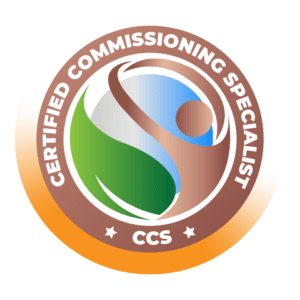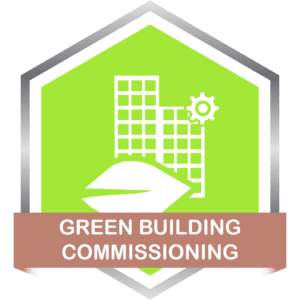 Building Commissioning Professional – BCxP Exam Prep Training
Building Commissioning Professional – BCxP Exam Prep Training
Being a BCxP means being up-to-date in the ever-changing world of building commissioning, allowing you and your company to be at the cutting edge of this maturing industry.
The BCxP certification validates competency to lead, plan, coordinate, and manage a commissioning team to implement commissioning processes in new and existing buildings. The BCxP validates competency in these key areas: managing commissioning projects, preparing commissioning documentation, managing training activities, completing warranty phase activities, and conducting existing and on-going commissioning.
Welcome to the Complete BCxP Exam Preparation Course. A fast, simplified, and straight-to-the-point BCxP exam preparation course It will cover all BCxP Exam Course material, all sections, and all of the commissioning duties and tasks. Along with every few lectures, there are integrated practice questions, which we will do together. will give you tips and tricks on how to answer the BCxP questions correctly.
Upon completion of the course, you will be granted complimentary access to a comprehensive set of over 120 practice exam questions. It assists practitioners who are interested in expanding their knowledge of the commissioning field.
Building commissioning professionals ensure that building and mechanical systems meet operational and design requirements in new construction and analyse and design for the optimization of systems in existing buildings to improve building performance and energy efficiency.
The Building Commissioning Professional – BCxP Exam Prep Training was prepared by Krishnaji Pawar, CEO and founder of Beyond Smart Cities.
The main function of building commissioning professionals is to ensure the HVAC/R systems and associated controls, domestic hot water systems, lighting controls, renewable energy systems, and other energy-using building systems meet the owner’s performance requirements and perform and operate as intended with maximum efficiency. This can be done on new construction projects or with existing building stock.
This course to prepare for the exam is without a doubt the most thorough BCxP course you can find online. Even if you have zero building commissioning knowledge, this course is right for you, and here’s why:
- Experts and commissioning specialists are those who teach the course.
- The course has been updated to be 2024-ready, and you’ll be learning the latest BCxP exam study material.
- The course is short and sweet, with quality study materials. Without cutting any corners, there is no need to watch more than 21 hours of content to ace the exam.
- The curriculum was made over a period of 10 years or more, with a lot of testing and feedback from students.
- We have taught over 1,000 students how to pass the BCxP, CCP, CBCP and ACP Exams.
Key Takeaways
- Learn about commissioning basics and managing commissioning projects.
- Understanding commissioning and its terminologies
- Learn about preparing commissioning documentation.
- Learn about managing training activities, existing CxA, and ongoing CxA.
- Recognize retro commissioning and key attributes
- Learn about commissioning high-performance buildings.
- You will have access to 100 questions ranging in difficulty from easy to moderate, difficult, and expert.
Other Related courses
Building Commissioning Professional – BCxP Exam Question Bank
While the 820-question BCxP Practice Exam featuring flash cards on essential terminology is indeed beneficial in and of itself, the Building Commissioning Professional – BCxP Exam Question Bank will aid building commissioning professionals in formulating a focused, personalized study strategy to successfully accomplish their professional development goals.
Key takeaways
- You will have access to more than 820+ questions in 7 mock exams that go from easy to medium to hard to expert.
- Our simulation exams are considered part of your studies as they cover the BCxP Exam Knowledge Domains.
- You will become familiar with building commissioning and terminology.
- You will likely pass the exam on your first attempt
- You will become familiar with building commissioning and terminology.
- BCxP Exam: Flash Cards (One set of key terminology flash cards. Over 108+ key terms!
- BCxP_Engineering and HVAC design Equations






